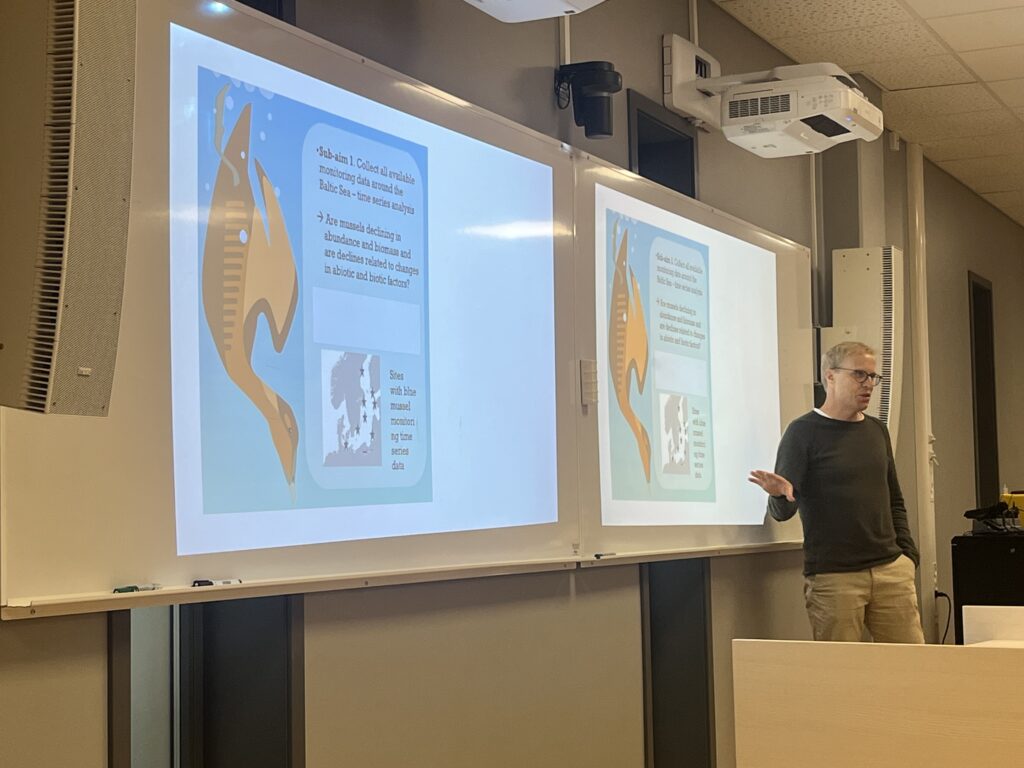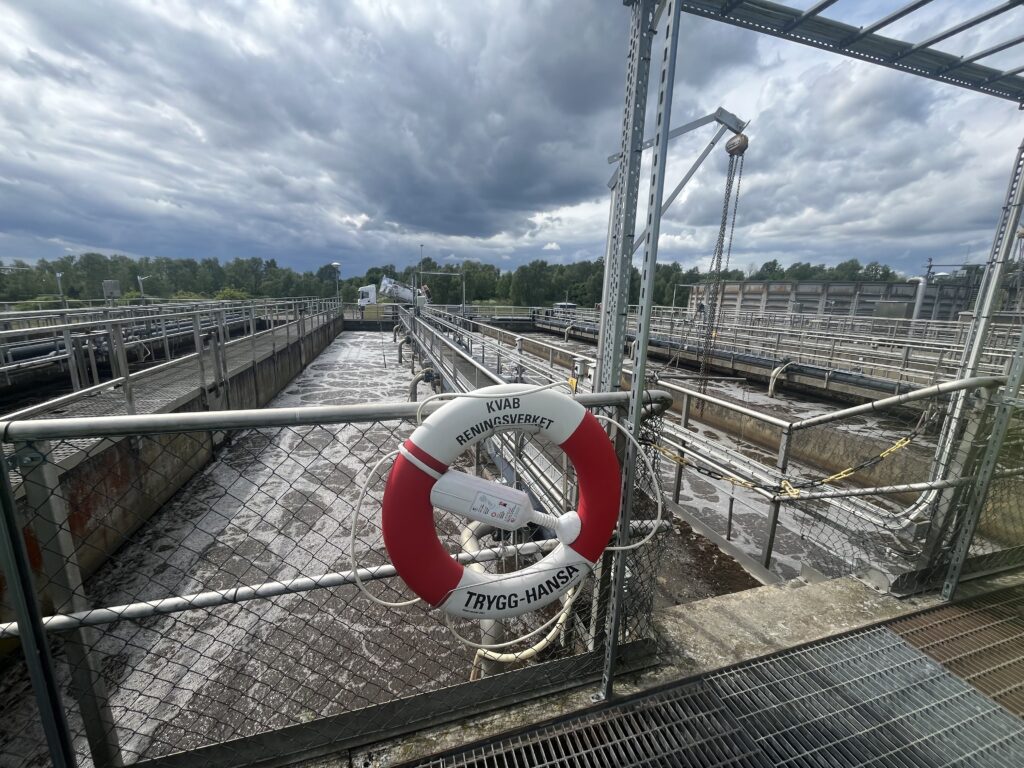The Flow: KM Vatten Newsletter 💧🌊
Postat den 10th June, 2025, 12:37 av caliac
Week 24, 2025
Connecting Water, Research, and Community 🌍🔬
✨ Apply Now: This Year’s Science & SciLifeLab Prize Opens! ✨
Are you a recent PhD graduate in the sciences? Don’t miss your chance to win up to 💰 US$30,000, get published in Science magazine 🧬, and enjoy an exclusive week of events in Stockholm, Sweden 🇸🇪!
The SciLifeLab Prize celebrates outstanding young researchers across four categories:
- 🧪 Cell and Molecular Biology
- 🔬 Genomics, Proteomics & Systems Biology
- 🌿 Ecology & Environment
- 💊 Molecular Medicine
Each year, four winners are selected, receiving recognition, funding, and incredible networking opportunities with top scientists 🌍. The application deadline is July 15, 2025 ⏳.
Eligible applicants must have earned their PhD between January 1, 2023, and December 31, 2024.
Learn more and apply at scienceprize.scilifelab.se 🔗 or contact us at scilifelabprize@aaas.org 📧.
Supported by the Knut and Alice Wallenberg Foundation.
🌊 SBHSS Vattenposition: Building a Sustainable Water Future
SBHSS, a collaboration among five regions and a university in southern Sweden, promotes sustainable water development. The region faces challenges from climate change, infrastructure, and pollution, impacting local communities and ecosystems. SBHSS aims to influence EU water policies, focusing on circular water use, pollution control, marine ecosystems, and climate adaptation.
💧 Key Water Topics & EU Focus Areas
- Circular Water Use: Climate scenarios predict more extreme weather, requiring robust and flexible systems. EU is urged to support infrastructure for rainwater and wastewater reuse, especially on islands and remote areas.
- Water Pollution: EU regulations need updating to better address pharmaceuticals, microplastics, and PFAS. SBHSS advocates stricter controls, public awareness, and innovation in sustainable materials.
- Marine Ecosystems: Overfishing, nutrient runoff, and physical alterations threaten biodiversity. Efforts should focus on sustainable fishing, reducing nutrient leakage, and protecting habitats.
- Climate & Resilience: Adaptation strategies, such as natural flood defenses, are vital to handle wetter winters and drier summers. EU and regional cooperation will be key.
- 🔬 Innovation & Knowledge Sharing
SBHSS promotes increased research funding, cross-border knowledge exchange, and community engagement to develop resilient water systems. Supporting the EU’s efforts for sustainable water and ocean management is essential for regional and global health.
Questions or more info?
Contact EU Coordinator Martin Broberg:
📧 Martin.broberg@sbhss.eu
The European Ocean Pact 🌊
The European Ocean Pact emphasizes the critical importance of oceans and seas for Earth’s climate, economy, security, and sustainable development. The EU manages the world’s largest collective maritime area, supporting millions of jobs and a blue economy worth over €250 billion annually.
Despite these assets, ocean health is declining due to climate change, pollution, overexploitation, and geopolitical tensions, threatening security and infrastructure. The Pact proposes a holistic, multi-sectoral approach, building on existing laws, to coordinate efforts and implement policies more effectively across all maritime sectors. A key element is the development of an “Ocean Act” to modernize maritime spatial planning and streamline ocean-related legislation and reporting.
The Pact will establish a public “EU Ocean Pact dashboard” to monitor progress and involve stakeholders through a high-level Ocean Board for oversight. Regional cooperation will be intensified, encouraging sea basin approaches, multi-use practices, and collaboration between neighboring countries to optimize ocean space.
Special focus will be given to regional challenges, notably in the Baltic Sea, Black Sea, Mediterranean, and Arctic, with tailored strategies for each area. The initiative aims to protect and restore ocean health, support sustainable blue economy growth, and reinforce maritime security and defense. Overall, the Pact seeks to position Europe as a global leader in ocean governance, fostering international partnerships and innovative solutions for ocean resilience.
Read the European Ocean Pact in full here!
New Horizons at BOM

Our department conference marked the end of a successful year with keynote speaker Andreas Jahrehorn Önnerfors addressing the critical threats to research, including fake news and the changing political climate in academia, as well featuring our new professor Bodil Sundberg, and the introduction of our new BOM center of excellence, CENWIN.
Day 2 showcased four diverse research presentations, highlighting the interconnectedness of ecosystems from microbial processes in the deep biosphere 🦠, disease spread in birds and mammals 🦆, microbial resilience in the deep ocean 🌊, to environmental monitoring of blue mussels in the Baltic Sea 🦪.
Despite different topics, all talks emphasized the importance of collaboration in tackling global environmental challenges and understanding unseen microbial and chemical processes shaping Earth’s ecosystems. The event fostered valuable scientific dialogue, with participants engaging through feedback and thoughtful questions.
Overall, the conference underscored the vital role of collaborative research in addressing a changing world and protecting our planet’s interconnected ecosystems. 🌍 Thank you to all participants!
Student Visit to Kalmar Vatten Highlights Innovation and Sustainability

Second-year biology students and KM Vatten had an engaging study visit at Kalmar Vatten, the municipal wastewater treatment facility. Led by sustainability strategist Jenny Holmgren, the group gained insights into the the facility upcoming refining operations, including the upcoming “ultra-refining” stage set for completion by 2027, including UV treatment. The visit also covered Kalmar Vatten’s efforts to reduce greenhouse gases, with drone surveys and fixed meters helping monitor methane and nitrous oxide emissions. Additionally, the facility is tackling microplastics and debris pollution and exploring water reuse for non-potable purposes like car washing and watering green spaces.
Also, KM Vatten would like to take this opportunity to spread the word: Don’t flush anything that is not toilet paper or from the human body! Medications, feminine hygiene products and even more are dealt with the engineers at Kalmar Vatten every day. Keep it clean! 🚽 🚫
Don’t forget!
🚢📅 The application window for SWERVE Vessel Time 2026 is now open, offering Swedish marine scientists access to research vessels and data resources, with a deadline of July 21, 2025. Apply via Marine Facility Planning by selecting SWERVE as your organization, and visit Fartygstid | SWERVE or contact Lovisa Thoursie at lovisa.thoursie@gu.se for more information.
🏆🌊 Nominate a talented master’s student finishing a marine thesis approved between July 2024 and June 2025 for the Dyrssen Award 2025, which includes cash prizes of 10,000 SEK and 5,000 SEK, and an invitation to speak at Marine Research Days in Gothenburg this November. The nomination deadline is August 30, 2025; for more information, visit the Dyrssen webpages or contact dyrssen@shf.se.
Det här inlägget postades den June 10th, 2025, 12:37 och fylls under The Flow: KM Vatten's Official Newsletter
